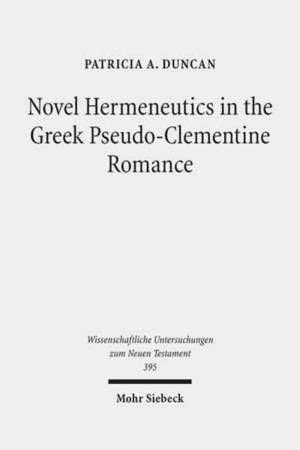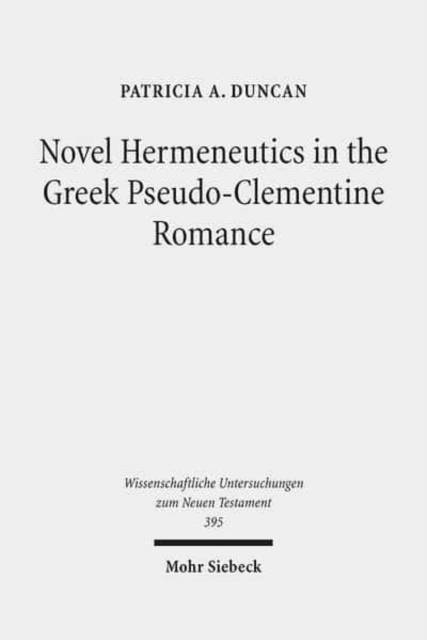
- Afhalen na 1 uur in een winkel met voorraad
- Gratis thuislevering in België vanaf € 30
- Ruim aanbod met 7 miljoen producten
- Afhalen na 1 uur in een winkel met voorraad
- Gratis thuislevering in België vanaf € 30
- Ruim aanbod met 7 miljoen producten
Zoeken
Omschrijving
Patricia A. Duncan examines the fourth-century Christian novel traditionally known as the Pseudo-Clementine Homilies (but here referred to as the Klementia) in order to show how the lengthy and complex narrative coheres as a rhetorical whole and works to initiate the reader into a revised, esoteric vision of the origins of Christianity. The novel is well known for its distinctive doctrine of "false pericopes" in the scriptures of the Jews, but equally important is the way it capitalizes on its narrative genre to correct false pericopes in the Gospels of the New Testament. Key to the novel's project is a construction of the apostle Peter as the chief tradent and the fully authorized interpreter of the words and deeds of the True Prophet Jesus. This Peter offers up of a law-abiding, monotheistic "Christianity" that is fully continuous with the religion of the followers of Moses.
Specificaties
Betrokkenen
- Auteur(s):
- Uitgeverij:
Inhoud
- Aantal bladzijden:
- 204
- Taal:
- Engels
- Reeks:
Eigenschappen
- Productcode (EAN):
- 9783161552656
- Verschijningsdatum:
- 1/11/2017
- Uitvoering:
- Hardcover
- Formaat:
- Genaaid
- Afmetingen:
- 157 mm x 231 mm
- Gewicht:
- 498 g

Alleen bij Standaard Boekhandel
+ 239 punten op je klantenkaart van Standaard Boekhandel
Beoordelingen
We publiceren alleen reviews die voldoen aan de voorwaarden voor reviews. Bekijk onze voorwaarden voor reviews.







